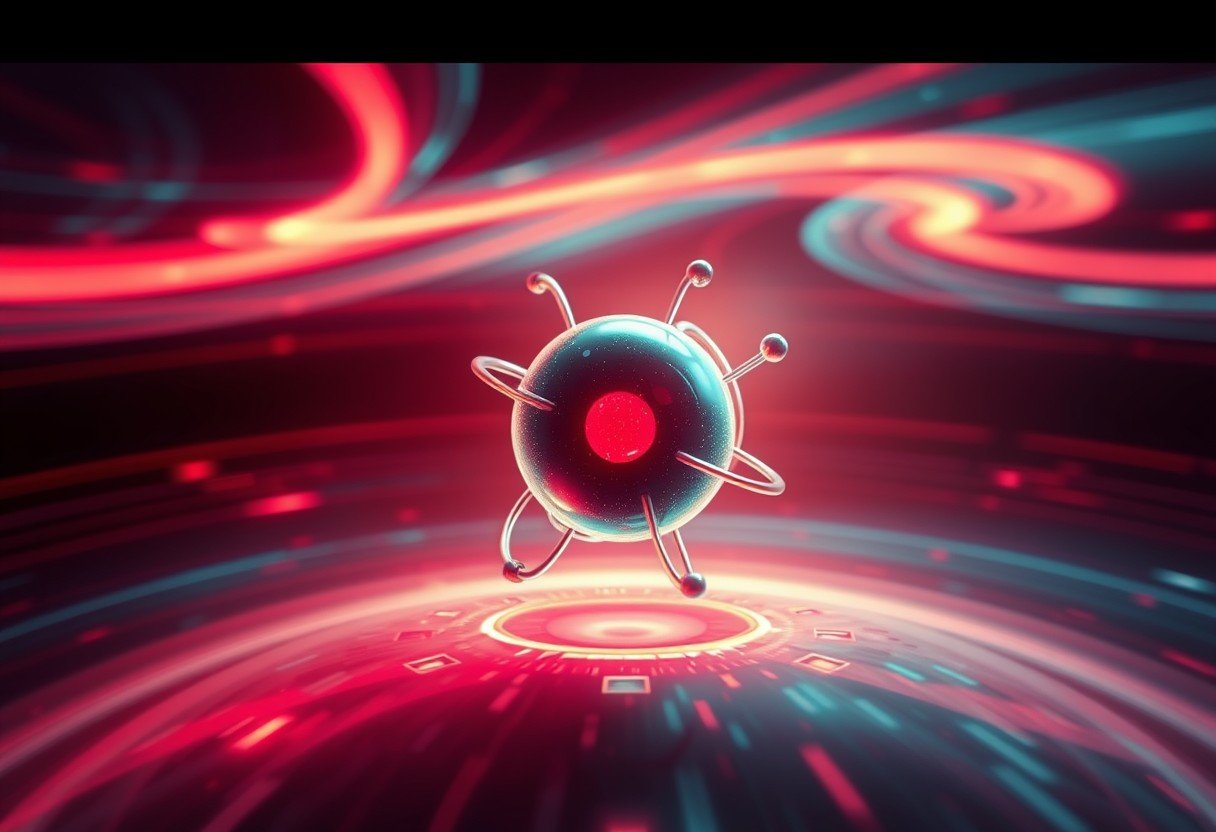You might not know his name, but inventor George Westinghouse fundamentally changed your world. His development of the alternating current (AC) electrical system in the late 19th century revolutionized how power is generated and distributed. Without this single invention, the modern world of instant electricity, convenient appliances, and interconnected cities would be impossible, making your daily routine dramatically different.
What Made Alternating Current so Revolutionary?
The core of George Westinghouse’s contribution was his championing of alternating current (AC) over direct current (DC), the system favored by Thomas Edison. While DC flows in one direction, AC periodically reverses its direction. This seemingly small difference had enormous consequences for electrifying the world.
AC’s main advantage is its ability to be easily “stepped up” to high voltages using a transformer for long-distance travel and then “stepped down” to safer, lower voltages for use in homes and businesses. This process is far more efficient than transmitting DC power, which suffers from significant energy loss over distance. This efficiency is the primary reason why large, centralized power plants can serve entire regions today.
To better understand the key differences, consider this simple comparison:
| Feature | Alternating Current (AC) | Direct Current (DC) |
| Energy Loss | Minimal over long distances | High over long distances |
| Voltage Change | Easy with transformers | Difficult and inefficient |
| Best Use Case | Large-scale power grids | Batteries, electronics |
Without AC, electricity generation would have remained localized. Cities might have had numerous small, inefficient DC power stations, making electricity a costly luxury rather than a universal utility.
The Engine of Industrial and Economic Growth
The arrival of efficient AC power was a catalyst for the Second Industrial Revolution. Factories were no longer tethered to a nearby power source like a river or a small DC plant. With AC, they could be built anywhere the grid could reach, leading to unprecedented industrial expansion.
This newfound access to reliable energy transformed manufacturing. Large, powerful AC motors could run heavy machinery, enabling mass production on a scale never seen before. Automation became a reality, increasing output and making goods more affordable for everyone. Without Westinghouse’s AC systems, the growth of modern manufacturing and the consumer economy would have been severely stunted.
This industrial boom also created a surge in job opportunities. New industries emerged to build the electrical infrastructure, manufacture appliances, and work in the newly powered factories. This economic ripple effect raised the standard of living for millions and laid the foundation for the prosperous, dynamic economies we see today.
Shaping Your Home and Modern Cities
Look around your home, and you’ll see the direct impact of Westinghouse’s invention. Refrigerators, washing machines, air conditioners, and televisions all depend on the reliable, safe supply of AC power. Without it, these conveniences would be rare, and daily chores would be far more labor-intensive.
Beyond the home, AC power reshaped urban landscapes.
- Public Transportation: Electric streetcars and subways, powered by AC, allowed cities to expand. People could live farther from their workplaces, leading to the development of suburbs.
- Public Safety: Bright, reliable electric street lighting made cities safer at night, encouraging commerce and social activities after dark.
- Infrastructure: Large-scale systems for water supply and sanitation, which rely on electric pumps, became feasible, drastically improving public health.
Essentially, the modern city as you know it, with its bustling infrastructure and high-rise buildings, was built upon the backbone of Westinghouse’s AC power grid.
The Unseen Power Behind Today’s Technology
The influence of AC power extends far beyond lights and motors. It is the fundamental platform upon which nearly all modern technology is built. The internet, for example, relies on a global network of servers, routers, and data centers that consume vast amounts of electricity, all delivered efficiently via AC grids.
Even advancements in renewable energy depend on Westinghouse’s legacy. Wind turbines and solar farms generate electricity that must be converted to AC to be integrated into the power grid and sent to your home. The development of smart grids, which allow for real-time monitoring and management of energy consumption, is an evolution of the same AC principles established over a century ago. This compatibility ensures a smoother transition toward a sustainable energy future.
Westinghouse’s Lasting Global Legacy
George Westinghouse was not just an inventor; he was a visionary who won the “Battle of Currents” against Edison. His victory ensured that AC would become the global standard for power distribution. His company, Westinghouse Electric, played a crucial role in electrifying the United States and the world, from the Niagara Falls hydroelectric project to power grids across Europe and beyond.
His work inspired generations of engineers and innovators. The principles he established are still at the core of electrical engineering today, and his focus on safety and efficiency continues to guide the development of our power systems. Every time you flip a switch, you are experiencing the enduring legacy of his groundbreaking invention.
Frequently Asked Questions
What would electricity transmission be like without Westinghouse’s invention?
Without the AC system, electricity transmission would be extremely inefficient over long distances. We would likely rely on localized direct current (DC) power stations, meaning electricity would be a costly and limited resource, with vast rural areas remaining without power.
How did AC power affect the growth of factories?
AC power allowed factories to be built almost anywhere, not just next to a power source. It enabled the use of powerful electric motors, which led to mass production, automation, and a massive boom in industrial growth and economic development.
Would we have modern home appliances without AC power?
It’s highly unlikely. The development of appliances like refrigerators, washing machines, and air conditioners depended on a safe, reliable, and widespread electrical supply. AC power made this possible, bringing modern convenience into the home.
Is AC power important for renewable energy sources?
Yes, it is crucial. Renewable sources like wind and solar generate power that is converted into AC to be fed into the existing electrical grid. Westinghouse’s AC infrastructure is essential for distributing this green energy to consumers.
Who won the “Battle of Currents,” Westinghouse or Edison?
George Westinghouse ultimately won. His alternating current (AC) system proved to be far more efficient and practical for large-scale power distribution than Thomas Edison’s direct current (DC) system, which is why AC became the global standard.









Leave a Comment